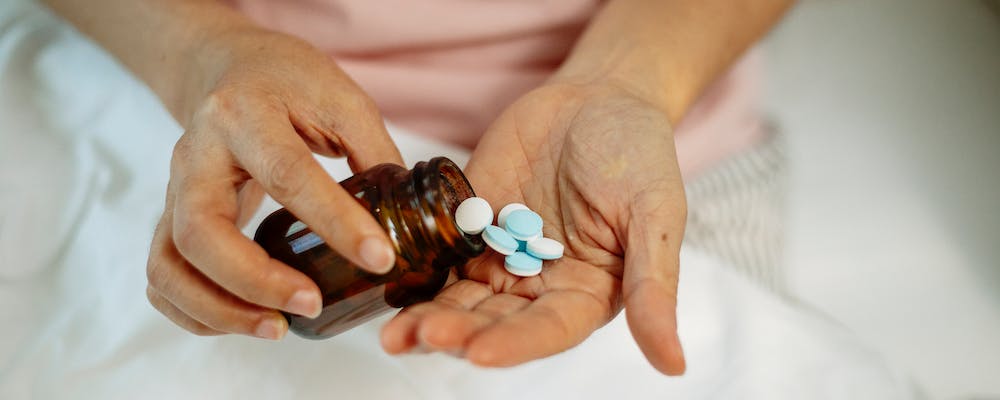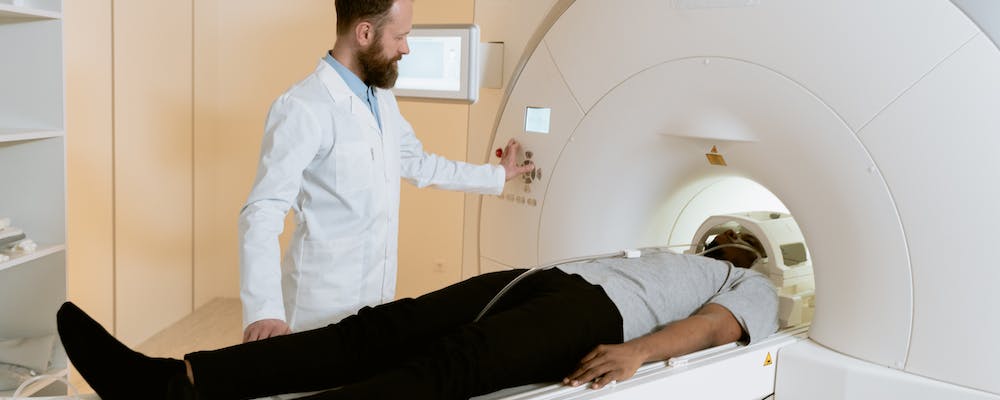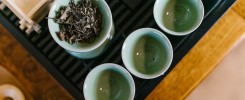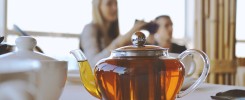As a traditional fermented tea in China, Pu ‘er tea is rich in nutrition, but not everyone is suitable for taste. In this article, we will discuss the reasons why six kinds of people should not drink Pu ‘er tea.
1. Pregnant women are not suitable
In diet choice, pregnant women need to be extremely cautious, because their diet choice is not only related to individual health, but also directly affects the growth of future newborns. Although Pu ‘er tea is highly regarded for its rich nutrients, trace caffeine and aflatoxin make it a tea that needs careful consideration during pregnancy.
Many studies have found that excessive caffeine intake by pregnant women may pose a potential risk to fetal development. This is not just a theoretical concern. In fact, some cases have shown that excessive caffeine intake is related to low birth weight and premature birth of newborns. Therefore, for pregnant women, the trace caffeine in Pu ‘er tea should be a part of the diet that needs careful control.
(another topic: Is Puer Tea Psychoactive? A comprehensive analysis)

In addition, the hormones of pregnant women fluctuate greatly, which may cause discomfort to the irritating Pu ‘er tea. It has been reported that some pregnant women have stomach upset and nausea after drinking Pu ‘er tea during pregnancy, which is related to the increase of physiological sensitivity caused by hormonal changes. Therefore, in order to ensure the safety of pregnant women and fetuses, experts generally recommend avoiding or limiting the intake of irritating tea during pregnancy.
This situation has also had some thought-provoking cases in history. For example, in some areas, there are reports that excessive drinking of Pu ‘er tea by pregnant women leads to abnormal fetal development. This has aroused concern about the effects of Pu ‘er tea ingredients on fetal health. Therefore, it is more important for pregnant women to choose suitable tea to ensure the health during pregnancy and the good development of newborns.
2. Patients with digestive diseases should be cautious
Pu ‘er tea is very popular because of its digestion-promoting properties, but for those patients who already have digestive diseases such as gastric ulcer and gastritis, drinking Pu ‘er tea should be extremely cautious. Caffeine and tannic acid in Pu ‘er tea may stimulate gastric mucosa, and then aggravate the existing digestive problems.
Caffeine is a noticeable component in Pu ‘er tea. It has the effect of promoting gastric acid secretion, which may pose a challenge to patients with digestive system diseases. Excessive caffeine intake may lead to hyperacidity and aggravate the stimulation of gastric mucosa, thus causing pain and discomfort. For people with gastric ulcer, this may lead to the deterioration of ulcer and increase the difficulty of treatment.
(another topic: Is puerh tea anti-inflammatory?)

In addition, the fermentation process of Pu ‘er tea may produce nitrosamines, which are closely related to digestive system problems. Nitrosamines have been found to be related to diseases such as gastric cancer. Therefore, for patients with digestive system diseases, especially during treatment or rehabilitation, Pu ‘er tea should be avoided to avoid introducing factors that may aggravate the disease.
Professional medical opinions generally suggest that patients with digestive system diseases should consult their doctors when choosing tea. Doctors can tailor appropriate dietary suggestions for patients according to their specific illness and physical condition, so as to ensure that health care will not have a negative impact on the disease. This personalized medical advice is helpful for patients with digestive diseases to better manage their eating habits and improve the rehabilitation effect.
3. Long-term users of drugs should be cautious
Individuals who use drugs for a long time, especially those involving liver and kidney functions, need to be extra cautious about their diet choices. Puer tea is rich in polyphenolic compounds, which have antioxidant and health care effects to some extent, but may interfere with the drug metabolism process, thus affecting the therapeutic effect.
Polyphenols are the main components of Pu ‘er tea, which have strong antioxidant properties, but also show some pharmacological effects. Polyphenols in Pu ‘er tea may interact with drugs among long-term drug users, especially those who need to monitor liver and kidney function frequently.
(another topic: What are the side effects of Puer tea?)

The metabolic process of drugs mainly occurs in the liver, and some polyphenolic compounds may interfere with the metabolism and clearance of drugs in the body by affecting the activity of drug metabolizing enzymes. This may lead to the change of drug retention time in the body, thus affecting the therapeutic effect. Especially those drugs that have a certain burden on the liver and kidneys, such as some antibiotics and anticancer drugs, need to be carefully considered with Pu ‘er tea.
During the period of taking medicine, it is suggested that long-term users should carefully choose whether to drink Pu ‘er tea in their diet, and it is best to make decisions on the advice of doctors. Doctors can evaluate patients’ specific conditions and drug treatment plans, and provide patients with professional dietary advice to ensure the effectiveness of drugs and the overall health of patients. This kind of individualized medical advice helps patients to better manage their eating habits and ensure that drugs can play the best role.
4. Patients with low blood pressure should be cautious
The hypotensive effect of Pu ‘er tea is a feature that has attracted much attention. However, for individuals with hypotension, drinking Pu ‘er tea may further lower blood pressure and cause a series of uncomfortable symptoms, including but not limited to dizziness and fatigue.
Hypotension refers to the low pressure on the blood vessel wall when blood flows in the blood vessel, which may lead to insufficient blood supply to the body. Some bioactive components in Pu ‘er tea, such as tea polyphenols and caffeine, are considered to have the effect of dilating blood vessels, thus lowering blood pressure. For patients with hypotension, this antihypertensive effect may exceed their physiological adjustment range, resulting in a series of uncomfortable symptoms.
(another topic: Does puer tea have caffeine?)

In some cases, patients with hypotension reported dizziness, fatigue and even syncope after drinking Pu ‘er tea. These reactions are mainly attributed to the influence of active ingredients in tea on blood pressure, especially when drinking a large amount. Therefore, professional medical opinions suggest that patients with low blood pressure should be cautious when considering drinking Pu ‘er tea, and stop drinking immediately in case of discomfort.
In addition, it should be emphasized that the eating habits of patients with hypotension should be fully communicated with doctors. Doctors can comprehensively consider the overall health status of patients and provide individualized dietary advice to patients according to the trend of blood pressure change and drug use. Such a personalized medical plan not only helps to reduce the risk of patients’ discomfort, but also ensures that patients will not have adverse effects on their condition while maintaining health.
5. Use with caution in patients with heart disease
Caffeine and theophylline in tea are two kinds of alkaloids with exciting effect, and their existence in Pu ‘er tea may have certain influence on patients with heart disease. These two alkaloids are thought to stimulate the central nervous system, accelerate the heart rate, and dilate the coronary artery, thus increasing the burden on the heart.
For those individuals who already have heart disease, especially those with abnormal heart rate, drinking Pu ‘er tea should be carefully considered. Abnormal heart rate may include too slow or too fast heart rate, which is directly related to the stimulant components in tea. Accelerating the heart rate may lead to a heavier burden on the heart, especially in the case of abnormal heart structure or ischemic heart disease.
(another topic: Does Puer Tea Make You Sleepy?)

Some studies have pointed out that excessive intake of caffeine and theophylline is related to the occurrence of arrhythmia, which is particularly sensitive to patients with heart disease. Therefore, professional medical advice emphasizes that it is best for patients with heart disease to avoid drinking Pu ‘er tea, so as not to cause unnecessary physiological reactions and aggravate the condition.
In addition, the contents of caffeine and theophylline in tea are different in different teas, so the intake in diet should be tailored according to individual health status. For patients with heart disease, the guidance and advice of professional doctors is very important to ensure that the diet does not contain ingredients that may have a negative impact on the heart. This personalized medical advice helps patients to better manage their eating habits, reduce the risk of illness and improve their quality of life.
6. Children under 3 years old should drink carefully
The developmental stage of children is a critical period for the gradual maturity of various systems of the body, and its digestive system is particularly fragile. Some components in tea, including but not limited to caffeine and tea polyphenols, may pose a potential burden on children’s development.
Caffeine is an alkaloid in tea, and its metabolism in children is relatively slow, which may lead to its high sensitivity to caffeine. Excessive intake of caffeine may cause discomfort such as excitement and insomnia in children. In addition, tea polyphenols are a kind of compounds with antioxidant properties, but too much intake may lead to intestinal discomfort and even affect the absorption of nutrients when the digestive system of children is not fully developed.
(another topic: Does puer tea have caffeine?)

In addition, tea also contains some substances that are more irritating to children, such as tannic acid, which may stimulate children’s gastric mucosa and affect their digestion and absorption function.
Medical experts generally unanimously recommend that children under 3 years old should avoid drinking tea. This suggestion is based on the in-depth understanding of children’s physiological development characteristics and the study of the potential influence of tea ingredients on children. At this stage, children should mainly eat breast milk or formula milk to ensure adequate nutrition and promote the healthy development of the body.
When parents cultivate their children’s eating habits, they should pay special attention not to let tea replace dinner, and choose drinks that are more suitable for children when drinking other liquids, such as water and juice. This kind of diet management aimed at individual differences of children helps to ensure their health and avoid causing uncomfortable reactions.
Generally speaking, although Pu ‘er tea brings many health benefits, it should be carefully chosen for certain people, especially pregnant women, people suffering from diseases or being treated. Under the premise of moderate drinking, it is feasible and safe to enjoy the health benefits brought by Pu ‘er tea.

